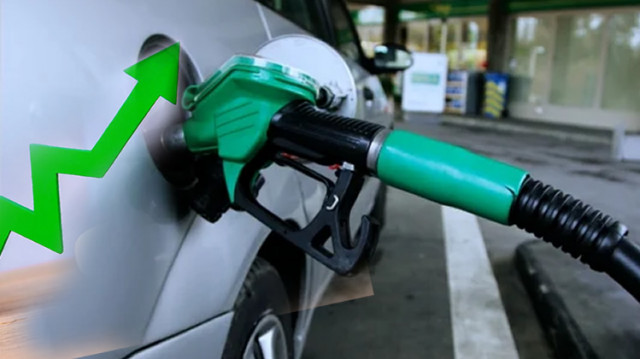There is growing concern in the downstream segment of the oil and gas industry as operators anticipate the Federal Government's decision regarding the naira-for-crude arrangement between the Nigerian National Petroleum Company Limited and the Dangote Petroleum Refinery.
The six-month agreement, which began in October 2024, officially concludes today, March 31, 2024. Discussions are ongoing about whether to extend or completely terminate the deal.
However, it has been reported that the committee in charge of the negotiations has not yet reached a conclusion. As the situation drags on, the impact is now being observed in the rising prices of refined petroleum products.
The price of petrol has surged from approximately N860/litre to over N930/litre in just one week. Dealers attribute this increase to the Federal Government's failure to renew the naira-for-crude arrangement with the Dangote refinery.
Our marketers anticipate further increases in petrol prices, forecasting that costs could reach N1,000/litre in the coming weeks if the naira-for-crude arrangement, which previously helped stabilize petrol prices, is not addressed. In addition, unless there are any last-minute changes, the Dangote refinery, which has a capacity of 650,000 barrels per day, is expected to shut down its petrol production unit for maintenance, scheduled for June and lasting 30 days.
Regarding the naira-for-crude deal, a source at the finance ministry involved in the negotiations disclosed that no significant developments have occurred.
The source noted that both parties have not held any meetings during the past week. "Nothing new has occurred. It's likely that the committee will convene after the holidays," stated the senior government official.
Recall that on October 1, 2024, the government began selling crude oil in naira to the Dangote refinery to enhance supply, save the country millions in petroleum imports, and ultimately lower fuel prices.
NNPC has recently reported that the Dangote refinery received 48 million barrels of naira-denominated crude under this deal, with a total of 84 million barrels supplied since the refinery began operations in 2023.
NNPC’s Chief Corporate Communications Officer, Olufemi Soneye, indicated in a statement that the original deal was for six months, and discussions for its renewal are presently ongoing, aiming to establish a new contract.
However, the situation changed significantly when the Dangote refinery temporarily halted naira sales of petroleum products on March 19, citing a discrepancy between its sales revenues and crude oil purchase obligations, which remain denominated in US dollars.
"Dear valued customers, we regret to inform you that the Dangote Petroleum Refinery has temporarily ceased sales of petroleum products in naira. This decision is essential to avoid a mismatch between our sales revenues and our crude oil purchase obligations, which are currently in US dollars. To date, our sales in naira have exceeded the value of naira-denominated crude received," the firm announced.
Following this announcement, the cost of loading petrol at private depots in Lagos surged to around N900/litre, climbing from below N850/litre prior to the announcement. Industry insiders suggest that the deal failed because the national oil company had leveraged significant volumes of yet-to-be-produced crude to secure loans from various international lenders, complicating the firm’s ability to provide sufficient crude for the domestic market.
Retail stations also raised their pump prices, which now range from N930 in Lagos to N950 in Abuja and N960 in the northern regions. While industry stakeholders remain hopeful for a resolution between both parties, the prevailing uncertainty surrounding the discussions suggests otherwise.
In response, the National Publicity Secretary of the Independent Petroleum Marketers Association of Nigeria, Chinedu Ukadike, criticized the current state of affairs, labeling it the primary cause for the upward trend in petrol prices driven by depot owners and retailers. He noted that a stakeholders meeting has been scheduled by relevant parties to seek a way forward.
Ukadike stated, “Due to this issue, we’ve organized a stakeholders meeting. We intend to convene and formulate a path forward. We advocated for the sale of crude oil in naira, and any deviation would have repercussions for us. Our stakeholders’ meeting is imminent. We initially planned to gather this week, but it was postponed to May 1, 2025, due to the Sallah and upcoming Easter breaks.”
The national officer mentioned that industry stakeholders expected to attend the meeting include the IPMAN National Working Committee, alongside executives and members of the Petroleum Products Retail Outlets Owners Association of Nigeria. He further revealed that marketers have suffered losses exceeding N200 billion due to price volatility over the past six months, which has dissuaded bulk buyers.
“We have incurred losses of over N200 billion due to price fluctuations in the last six months. The issue arises when we purchase at a set price, and by the time the vessels reach the depots and the discharge points, Dangote has lowered the price again. This discrepancy is absorbed by the marketer, making it challenging to re-enter the market after incurring losses,” Ukadike explained.
Dealers have blamed the Federal Government for causing the recent surge in petroleum product prices, particularly petrol.




















